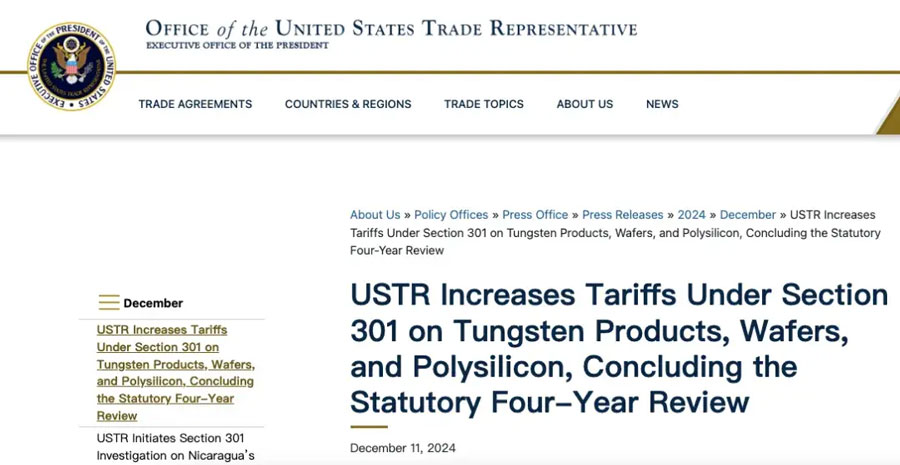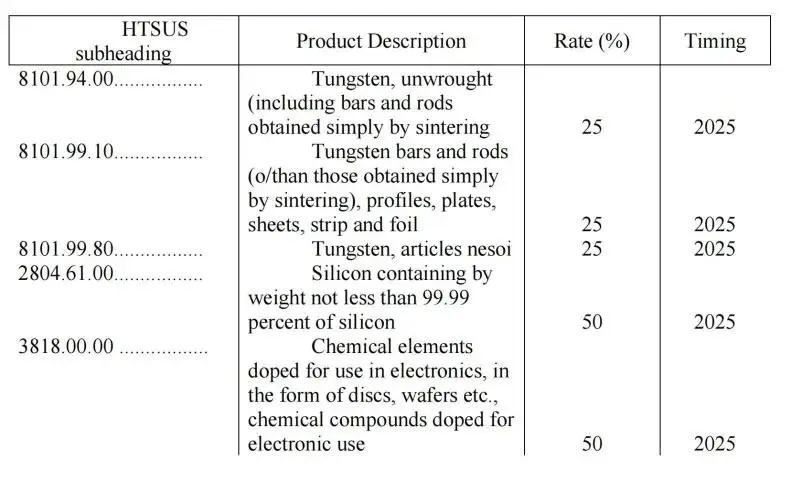

The maximum 50% tariff will go into effect on January 1, 2025!
In order to restrain China's development, the two US presidents Biden and Trump have done everything to impose a lot of tariffs on China, especially the latter's Trump, who likes to do two things, one is to publicize the theory that China is the biggest threat to the United States, and the other is to constantly increase tariffs.
On December 11 local time, the Office of the United States Trade Representative (USTR) announced that the United States will increase tariffs on certain tungsten products, silicon wafers and polysilicon imported from China in accordance with Section 301 of the Trade Act of 1974. The tax rate on solar wafers and polysilicon will increase to 50%, with the tariff increase taking effect on January 1, 2025.
All signs show that, as netizens said, the United States has been struggling on the edge of collapse, they will take some groundless things to suppress China, the dirty water to China, it can be seen that the IQ of the United States is not online.
In the announcement, the Office of the United States Trade Representative said that in consideration of the Section 301 Committee's comments and recommendations, and in accordance with the President's direction, it has decided to impose high tariffs on certain tungsten products, polysilicon, and silicon wafers starting in 2025. These actions are designed to protect the U.S. clean technology industry from cheap foreign supplies, said U.S. Trade Representative Vicki Dedge, adding that these measures will complement the U.S. government's domestic investments to promote a clean energy economy while enhancing the resilience of key supply chains.

On December 11 local time, the Office of the United States Trade Representative (USTR) announced that the United States will increase tariffs on certain tungsten products, silicon wafers and polysilicon imported from China in accordance with Section 301 of the Trade Act of 1974. The tax rate on solar wafers and polysilicon will increase to 50%, with the tariff increase taking effect on January 1, 2025.

All signs show that, as netizens said, the United States has been struggling on the edge of collapse, they will take some groundless things to suppress China, the dirty water to China, it can be seen that the IQ of the United States is not online.
In the announcement, the Office of the United States Trade Representative said that in consideration of the Section 301 Committee's comments and recommendations, and in accordance with the President's direction, it has decided to impose high tariffs on certain tungsten products, polysilicon, and silicon wafers starting in 2025. These actions are designed to protect the U.S. clean technology industry from cheap foreign supplies, said U.S. Trade Representative Vicki Dedge, adding that these measures will complement the U.S. government's domestic investments to promote a clean energy economy while enhancing the resilience of key supply chains.






